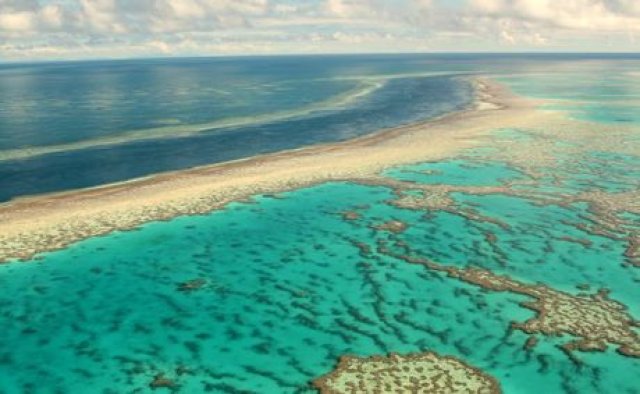
The Great Barrier Reef Marine Park Authority (GBRMPA) has approved plans to dump 3 million cubic metres of sand and mud in the Great Barrier Reef Marine Park.
This waste will come from dredging the sea floor during construction of the Abbot Point coal terminal near Bowen and will be dumped about 25 kilometres away within the boundaries of the marine park.
Federal Environment Minister Greg Hunt initially approved the proposal, before passing it on to the GBRMPA to make the final decision.
Central Queensland is a hub for Australia’s lucrative coal boom and the expansion of the port at Abbot Point will make it the largest coal port in the world.
Allegations of a serious conflict of interest have been raised over two members of the GBRMPA board having close ties with mining companies.
Board member and former Townsville Mayor Tony Mooney earns $250,000 a year as an executive of Guildford Coal which boasts on its webiste its plans “to become Australia’s next large independent miner”.
Another board member is Jon Grayson, who is a one-sixth shareholder in Gasfields Water and Waste Services, a company that environmentalists claim will profit from the expansion of shipping in the marine park area.
Hunt ordered an investigation into the two men last October and is waiting for the findings of the report.
In approving the plan, the GBRMPA ignored a letter signed by 233 scientists which warned of the dangers of approving the plan. It said: "The best available science makes it very clear that expansion of the port at Abbot Point will have detrimental effects on the Great Barrier Reef," the letter said.
"Sediment from dredging can smother corals and seagrasses and expose them to poisons and elevated nutrients."
When Gladstone Harbour was dredged for a port expansion in 2011, a wall containing toxic materials leaked into the reef and killed a large number of marine life, including fish, turtles and dugongs. This is the potential destruction this project could inflict on marine life.
Larissa Waters, Australian Greens environment spokesperson, said: “We can’t let the Abbott and Newman governments allow the devastation in Gladstone, which tourism and fishing operators are still suffering, to be repeated anywhere else in the Great Barrier Reef.”
The breakneck expansion of coal throughout Queensland is putting heavy pressure on the Great Barrier Reef. Nine mega-coal mines have proposed for Galilee Basin in central Queensland, which will double Australia’s coal exports in the next decade.
Greenpeace estimates the increase in the amount ships traveling through the reef will equal one an hour, each day of the year. The risk of oil spills, collisions and groundings that could occur on the reef is a serious concern.
The reef is not just threatened by the dredging and shipping and but also by the burning of coal itself. Climate change remains the biggest threat to the reef. Allowing mining moguls such as Gina Rinehart and Clive Palmer to fully exploit Queensland’s coal reserves will lock in iireversible climate change.
In 2012, the United Nations warned the reef was in danger of losing its World Heritage listing and urged the Australian government to take better care of it.
The tourism industry have pointed out that the reef brings in about $5 billion of tourism money into Queensland every single year and generated almost 70,000 jobs.
These jobs will be destroyed if the reef is allowed to die and the ecosystem collapse. The Great Barrier Reef is just another example of the growing ecocide on this planet, resulting from an unstable and anarchic process of development driven by the race for profit.
Now more than ever, it is becoming clear that the choice is between our reef and their profits.